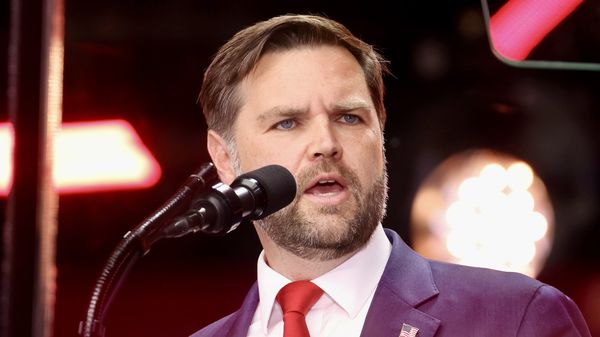
Anthony Albanese last week expressed discomfort at the notion of “faith-based political parties” following Senator Fatima Payman’s defection and subsequent resignation from the Labor Party. Albanese stated that religion-based politics are not the path to social cohesion, and that political factions only serve to further isolate minority religions.
But little attention has been paid to what Albanese and other politicians are actually talking about when they talk about religion.
While Australia is formally a secular nation, it is unavoidable that religion plays a significant role in our culture and politics. These influences range from the everyday — annual public holidays for Easter and Christmas — to the controversial — the influence of fundamentalist Christian movements on national debates such as marriage equality. It’s no secret that Christianity dominates in Australia, having both the largest national demographic and claim over our calendar. What is more complex is when and how politicians like Albanese differentiate between religion and culture.
Payman is hardly the first politician to bring religion into Parliament. Scott Morrison’s commitment to his Pentecostal Christianity informed more than a few of his actions as prime minister. While Morrison received a significant amount of scrutiny for his religious faith, at no point did Labor directly claim its incompatibility with his position. Overall, Morrison’s religion was accepted as part and parcel of his persona: a man concerned with traditional values.
Nor have other, current parliamentarians been scrutinised for their religious affiliations. Member for Macnamara Josh Burns has avoided his party’s ire towards religion in politics, despite his vocal references to his own Judaism in his opposition to Australia intervening in Israel’s war on Gaza. It is accepted at face value that his Jewishness informs his stance — despite the fact that Zionism can be a controversial movement within Judaism.
For Morrison and Burns, there has never been a realistic expectation of separating their religion from their politics. Quite sensibly, their faith is recognised as a fundamental aspect of their identity; to ask them to separate the two would be untenable.
For Payman, however, no such association is accepted. Instead, politicians and journalists alike have put a spotlight on her religion and demanded its severance from Payman’s culture — the same culture that Labor has been all too happy to laud as evidence of its commitment to multiculturalism.
What is the point of boasting of its support for the first hijabi woman in Parliament when Labor subsequently rejects the very system of meaning that inspires Payman to wear the hijab?
Based on his acceptance of politicians like Morrison and Burns, Albanese’s problem lies not with religion in general, but with Islam in particular. In segregating Payman’s Muslim identity, he ostracises Islam from all other traditions, positioning it as something alien. For all its urging that religious minorities avoid “isolating” themselves, Labor’s rhetoric isolates Muslims from all other religious groups. Rather than the language of family values and commitment to community used to describe other religious politicians, Payman has been painted as a zealot “guided by God,” as one Labor source put it. They would seemingly have you believe that Allah took Payman by the hand and led her across the floor.
A failure of religious literacy
This rhetoric surrounding religion in politics is only worsened by the lack of religious literacy among reporters. In 2021, Deakin University highlighted the failure of Australian journalists to provide informed reporting on topics related to religion, especially concerning faiths other than Christianity. This has only worsened in the three years since the study, with journalists like Patricia Karvelas insistently reporting on Payman’s religion despite an overt lack of familiarity with Islam.
The lack of religious literacy is largely due to our comfort in our status as a secular nation. Because religion has no formal role in our politics, we assume that religion isn’t relevant to us at all. This complacency with our own irreligiosity drives a lack of attention to the subject of religion, even when education on the subject stands to benefit us.
Australian schools are not required to provide any education on religion. While public schools are mandated to not promote any particular world view, the majority of private schools are affiliated with religious institutions (particularly Christianity), and thus deliver religious education heavily informed by this. On a national scale, schools neglect to provide their students with the skillset of religious literacy.
A hollow multiculturalism
The disparity of Labor’s approach to faith casts a dark shadow across its claims of diversity. The party desires not multiculturalism, but selective culturalism. Diverse backgrounds are accepted until they fail to toe the party line, at which point they are rejected and labelled antithetical to “social cohesion.” Despite the long history of religious influence on Australian politics, Labor claims that the problem is entirely new, heralded by the presence of politicians representing minority religions.
This is just a breath away from Peter Dutton’s assertion that Muslim candidates running for election would spell “disaster” for the nation. Dutton says the quiet part out loud: his problem is not with “a party that has a religious view,” but with Islam in particular. Unlike Dutton, Albanese attempts to smokescreen xenophobia with concerns about religion in general — a framing that falls apart as soon as one applies any amount of scrutiny to Labor’s actual attitudes towards religious adherence.
Labor’s weaponisation of religious language is no accident. The lack of religious literacy in the media creates a national landscape that discourages nuanced discussion of religion and its role. Labor’s isolation of Payman doesn’t just use this landscape to its advantage, it depends on it for legitimacy.
Discomfort with the topic of religion is not a problem within Labor, but for Australia in general. Until we contend with our lack of religious literacy, our claim of multicultural, multi-faith harmony will continue to be a hollow one.







